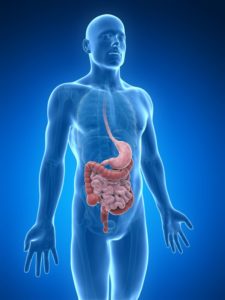
Metabolism is a big topic today! Many chronic health conditions including diabetes, heart disease, Neurological diseases such as Parkinson’s and Alzheimer’s disease, cancer and even Autism can be viewed as metabolic disorders; stemming from underlying problems in metabolism.
Metabolism is the process by which the body converts nutrients to energy, called ATP. The proteins, fats and carbohydrates you eat are turned into energy in little powerhouses found in our cells, known as the mitochondria. The energy created through metabolism fuels every cell in our body. Every cellular process that occurs in our body needs energy, and therefore a strong metabolic system. If there are problems in our mitochondria, then there are problems in creating energy for our cells to function properly.
 There are many different reasons for damaged mitochondrial health and sluggish metabolism. One of the biggest culprits is a poor diet. Eating processed sugar creates inflammation in the body and inflammation damages our mitochondria. Prescription medications can also damage our mitochondrial health. Environmental toxins, pesticides, heavy metals and internally produced toxins also affect our cellular energy.
There are many different reasons for damaged mitochondrial health and sluggish metabolism. One of the biggest culprits is a poor diet. Eating processed sugar creates inflammation in the body and inflammation damages our mitochondria. Prescription medications can also damage our mitochondrial health. Environmental toxins, pesticides, heavy metals and internally produced toxins also affect our cellular energy.
The health of our digestive system is very important for our mitochondrial health and metabolism. Yeast and bacteria found in our gut produce toxins that can have a very negative effect on our metabolism. Many people with poor gut health including gas, bloating, constipation and abdominal pain also complain of low energy, low immune functioning, difficulties losing weight, brain fog and hormonal abnormalities. All of these symptoms can be due to low cellular energy production and low metabolism. The toxins produced by these harmful yeast and bacteria affect the chemical reactions that occur in the mitochondria resulting in less energy production and more free radical production. Over time the individual starts to experience symptoms related to fatigue and low metabolism.
Mitochondrial energy is needed for the brain to work properly (ability to concentrate), for the immune system to work properly (prevent getting sick and reduce allergies), for the liver to detoxify properly, for burning of fat and sugar for energy (therefore weight loss) and the list goes on and on. Your mitochondria are very important!
If you have poor gut health and experience symptoms such as those I have described above, have your digestive health assessed by one of our naturopathic doctors. You may have an overgrowth of yeast or bacteria that are producing toxins which affect metabolism. Constipation is a sign of poor digestive health and may be a sign of mitochondrial dysfunction. Our naturopathic doctors can evaluate your digestive health, treat the overgrowth of yeast or bacteria, help you achieve regularity in your bowel habits and recommend the right nutrients to support your metabolism.
The comprehensive digestive stool analysis and the Organic Acid Test are great tests to evaluate your digestive health and how well your mitochondria are working. Take care of your gut and your mitochondria!
Yours in health,
Dr Tasreen Alibhai, ND
Also Read These Related Pages
Your DNA may hold the answers to guide you to successful weight loss
Is Stress Affecting your Weight Loss or Muscle Building Program?
Balancing Your Hormones for Weight Loss
The Influence of Hormones on Weight Loss
Stress Affecting Your Health & Weight Loss?
Medical Weight Loss Vancouver
Natural Ways to Reduce Belly Bloat!
Naturopathic Weight Loss
Weight Loss After Summer
Why Can’t I Lose Weight?





